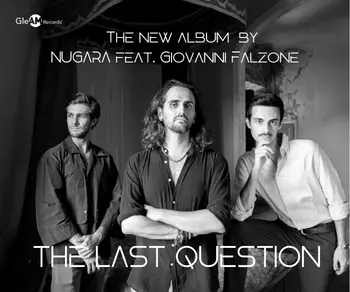Ron Blake: Scratch Band (7tēn33 Productions LLC002)
Saxophonist Blake has in the past worked with both Art Farmer and Roy Hargrove, facts which offer more than sufficient clues as to his modern bop credentials. In the former instance Farmer was enjoying something of a comeback playing the “flumpet”, a flugelhorn/trumpet hybrid of his own design, the sound of which was ideally suited to his lyricism and clarity of line.
In a sense it’s the case with this album that Blake’s highlighting both what he absorbed from those past masters and that he subsequently opted to sidestep a genre-specific career. As a native Puerto Rican, he has the option of digging into his relatively rarefied roots, and he does so here on the opening Bassman, where a Caribbean lilt is a mark of the proceedings. Here, as elsewhere, he plays the baritone sax as opposed to his more usual tenor, and this lends one of the less common colours to the music of this reeds, bass and drums trio.
Blake’s soprano sax on the lengthy Appointment, a piece that highlights what a well-integrated trio this is, shows little in the way of overt influences, at least as far as I can hear, although the Coltrane manner surfaces slightly in a more assertive moment, while his tenor sax on the same piece highlights the Farmer way in the sense that his playing is purged of excesses and thus all the more profound.
The baritone returns to the fold on La Conga De Juana, where the music is again purged of empty gestures. Indeed the lack of pretence, the lack of shifted paradigms, careers defined, epochs made or whatever else the marketing industry’s hung up on this month makes this album a refreshing pleasure.
Mark Masters Ensemble: Sam Rivers 100 (Capri Records 74173-2)
With the passing of time and the hyping of average talents that’s such a key part of the 21st century marketing norm, a figure like Sam Rivers can seem mercurial despite his lengthy career, his talents as reed player, flautist, pianist and composer and his appreciation for how the music can evolve and change.
Had he lived, Rivers would have chalked up a century on this earth in late 2023. As it was, the centennial moment was marked by a series of performances by the Mark Masters Ensemble. The actual birthday was 25 September, by which point Masters had for some time been mulling over the idea of arranging some Rivers pieces.
This album is thus the outcome of much deliberation. It homes in on the 1964 Blue Note album Fuchsia Swing Song to the extent that six of the 11 pieces originated there. This says much about focus, and also arguably about the extent to which that album is what Rivers is best known for.
In these six cases the recasting of music originally recorded by a quartet is extensive and not merely because the ensemble has 13 pieces, one of them saxophonist and featured soloist Billy Harper. While it might be true that the element of freedom on something like Luminous Monolith is hemmed in by relatively smooth harmonies and an offsetting melodic complexity, the fact remains that the level of creativity is high.
The freedom comes into its own on Calls Of The Wild, where trumpeter Tim Hagans joins the ensemble for a three-minute exercise in balance and poise the like of which might in lesser hands degenerate into so much bluster. These qualities, allied with undoubted commitment to challenging music, serve to elevate the album above the norm.
Louis Stewart: I Thought About You (Livia Records LRCD2501)
Back in the era when jazz was maybe less entrenched and indeed acknowledged as an international language, an Irish guitarist as accomplished in the Kessel, Hall and Burrell lineage as Louis Stewart might have been something of a novelty. But the fact that on this album he and the British pianist John Taylor keep company as fast as Sam Jones on bass and drummer Billy Higgins says more than enough about what used to be known as his chops.
Recorded in London in March 1977, the music is well within the bop, post-bop and modal fields, but the degree to which it stands out within that crowded territory is notable. Nothing is forced or contrived, and over the course of a programme that takes in compositions by the likes of Jimmy Heath and Chick Corea via Thelonious Monk, the balance between showcases for both the leader and the group is nicely struck.
Heath’s Smiling Billy (a dedication to Higgins?) is taken at a tempo which feels so right that the listener might fall to pondering how the art of tempo setting isn’t applied as often as it used to be. Over judicious support Stewart makes his solo case in the manner of a musician who knows how to make his point, while Taylor, spurred on by the drummer’s innate ability to get to grips with the passing moments, highlights how even at that point in his career he was emphasising his character. Proceedings are rounded off by bass and drum solos in which Jones and Higgins bring all their experiences and taste to bear.
This version of the title song put me in mind of Sinatra’s version with Riddle from 1956 and while I couldn’t easily explain why that is, there’s no higher praise as far as I’m concerned. Suffice to say I can’t remember the last time an album in this vein brought me so much pleasure.




